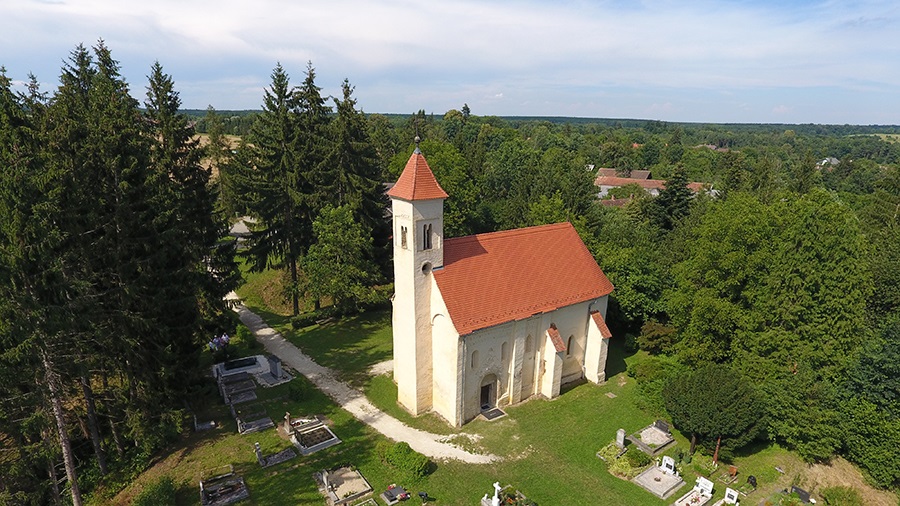‘…I consider Miklós Horthy a Hungarian patriot…after the unfair and distorted portrayal of Horthy, now, thanks to new assessments of his character, as well as political and historical analyses, a fair public image of Miklós Horthy and the eponymous era can be formed…’*
– József Antall, Prime Minister of Hungary, 1993
Miklós Horthy, the former Regent of the Kingdom of Hungary, was forced to emigrate after World War II—he settled in Portugal and died there in early 1957. In Hungary, which was under Soviet occupation from 1945 until the fall of communism, the Communists did everything in their power to ensure that Horthy lived on in the public consciousness as a fascist leader. In 1990, however, the opportunity arose to clarify the historical role of the Regent and, in accordance with his will, to bring his ashes home. His reburial took place 30 years ago in the small town of Kenderes.
On 4 September 1993, the ashes of Miklós Horthy, his wife, and their son Miklós Jr were laid to rest in the family crypt in Kenderes, the centre of the former Horthy family estate. Miklós Horthy de Nagybánya, former Regent of the Kingdom of Hungary, died in Portugal in 1957 and was originally buried there.
One of his last wishes was for his ashes to be brought home
once his beloved country was liberated from Soviet occupation. In his memoirs, he wrote: ‘My thoughts from the shores of the Atlantic are constantly drifting home to the banks of the Rivers Danube and Tisza, my sweet homeland, which for me cannot be replaced by the most beautiful country in the world. Here I see the sea every day, the element of life so beloved of my original vocation, and I delight in it. The sea is deep and infinite… but deeper is my love for my homeland, and greater is my longing for the Hungarian land and the Hungarian people!’ Horthy’s ashes were finally brought home three years after the regime change.
His burial ceremony, which was not organized by the state but held as a private function, was attended by more than 50,000 people—several ministers of the government and members of parliament were present as well. Before the church service, a eulogy was given by the representative of the Order of Vitéz founded by the Regent, Colonel General Kálmán Kéri, a former officer of the Horthy army, the mayor of Kenderes, the Regent’s daughter-in-law Mrs István Horthy, and his grandson István Horthy Jr. The words of the grandson had perhaps the greatest impact on those gathered together or watching the ceremony on television, as he addressed those, too, who view his grandfather’s life and politics differently from those who sympathise with him. He called on his fellow countrymen to look forward and unite for the future, rather than to engage in heated debates about the past.
As a result of the distortions and lies of Communist historiography,
many people have attributed to Horthy all the wrong decisions made by the governments in power between 1920 and 1945. However, thanks to source-based, unbiased, and objective research, it can now be clearly shown that the Kingdom of Hungary, which lost World War I, suffered the mutilation of the country by the Trianon Treaty and the resulting economic crisis, underwent significant development between 1920 and 1937.
Another accusation levelled against the period between the two world wars is that of ‘Horthy fascism’, which again shows a serious lack of knowledge. During Horthy’s reign, neither fascism—an Italian peculiarity—nor national socialism developing in Germany gained ground in Hungary, although the country was no democracy in the 21st-century sense, which I think it would be a mistake to blame Hungarian society for in hindsight.
In 1945, the Americans interrogated the Regent several times in Nuremberg, but he was not summoned to testify either as a defendant, or even as a witness, in the German War Crimes Trials. In spite of the above, left-liberal political circles—following the communist ‘path’—still try to depict Horthy as the only person responsible for the adoption of the Jewish laws and the Holocaust in Hungary to this day. This incitement against the Regent has sometimes physical consequences: for example, in the summer of 2020, a bust of Horthy, standing in front of the Church of Homecoming in the 5th district in Budapest on an enclosed private property belonging to the Reformed Church, was covered with red paint.
Miklós Horthy was born in Kenderes on 18 June 1868. A naval officer in the Austro–Hungarian Navy, he served as aide-de-camp to Francis Joseph between 1909 and 1914. As a rear admiral, he was the last commander-in-chief of the monarchy’s Navy. Before the end of the war, he was promoted to vice admiral by the newly crowned Charles IV of Hungary. After the end of WWI, following 133 days of communist dictatorship, the Romanian invasion, and rampant looting,
he consolidated state power and played a major role in putting the Kingdom of Hungary back on its feet,
after huge territorial losses. From 1 March 1920 to 15 October 1944, he served as Regent of the Kingdom of Hungary. After WWII, he was not found guilty of war crimes; however, he lived the rest of his life in exile and died on 9 February 1957 in Estoril, Portugal. In accordance with his will, his ashes were not brought home until Soviet troops withdrew from Hungary.
* Translated by Hungarian Conservative.
The views expressed by our guest authors are theirs and do not necessarily represent the views of Hungarian Conservative.








